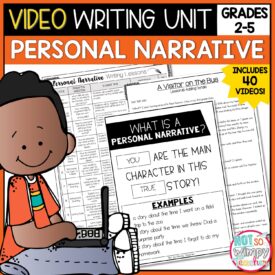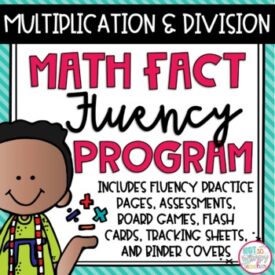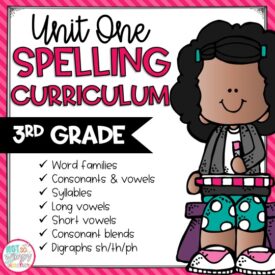Write out your entire schedule.
I have seven questions that I want you to ask yourself while looking at your schedule.
1. Is anything on your schedule not mandatory?
Highlight everything that is not mandated by administration. Highlight anything that is not part of the standards you must teach.
Don’t worry…I am not suggesting you need to eliminate everything you highlight!
Maybe you have a daily class meeting, bell work, or brain breaks that are not mandatory, but are necessary for your students.
Think about each of these and decide if any of these activities can be adjusted. For example, could you shorten class meetings by five minutes? Can class meetings be changed to only Mondays and/or Fridays? How about bell work? How much time are you giving for this activity? Is it truly all being used productively or is it really necessary? I know brain breaks are needed for students, but can you find a way to make it shorter? Are your students taking too long to recover from the brain break?
Think about these activities and ask yourself if they are absolutely necessary in your classroom, and if so, is there any way to shorten the duration of these activities.
2. How much time are you giving students to unpack and pack up?
When I looked at my schedule, I discovered that it was taking us too long to complete these tasks. Every minute is precious in my room, and these were becoming time-suckers! Watch your students and find out what is taking up the time.
Did I teach the procedures and have my students practice these enough? Should I go back and reinforce these procedures? Are the materials in the classroom in a place that makes it easy for students to unpack and pack up, or are materials too spread out? Can you somehow decrease the number of minutes used for these transitions each day? Every five minutes will add up!
3. How many minutes do your students spend transitioning from one activity to another?
Transitions are necessary, but are your transition times reasonable? Are your students focused and hustling when transitioning from one activity to another? Maybe you need to practice this process again so that no time is wasted. Maybe they need less materials to put away, or maybe the materials even need to be closer together.
4. Are you coming back from recess, specials, and lunch on time?
We all have those days when we would just love five extra minutes of recess. Or days when we were stuck in the copy room and were suddenly five minutes late to pick up our students from specials.
If you are finding that this is happening more times than not, how can you adjust this so that time isn’t wasted? Maybe you need to set a timer on your watch for a minute before each of these activities are over so that you are ready to pick up your class as soon as the time is up.
5. Is it possible to teach science and social studies for long blocks on Fridays and teach writing Monday-Thursday?
This may not work for all of you, or maybe your admin wouldn’t approve of this strategy, but it might be a solution for some of you! Consider it before you dismiss it!
I did this in my classroom and it worked beautifully. I found that when I taught science and social studies every day, I only had 30 minutes for these subjects. My lessons weren’t exciting because we didn’t have enough time in those 30 minutes to do hands-on experiments, investigations, and lessons.
When I moved these subjects to Fridays, I was able to spend such valuable time digging in deep to the standards for science and social studies. Guess what happened?! My students absolutely loved Fridays and were rarely absent!
Making this change freed up time Monday-Thursday to fit in writer’s workshop.
6. How much time are you spending on behavior management?
Think about how much time you are spending on behavior management. Time has to be spent on this, but how much time is going toward flipping cards, putting items in to warm fuzzy or marble jars, clipping up or down? Maybe you need an easier system.
Did you make your behavior management system too difficult and with too many steps? Are too many minutes wasted on behavior management? I totally get that we all have serious behaviors at times and these are necessary steps in the process of your classroom management, but are there solutions to help you save time? Is there one child that is taking up your instruction time? What needs to change so that more time is spent on instruction and not on management?
I wish I had an easy solution for this, but each student has different needs. Ask yourself- could I have an easier system for my management that will not continuously take away from instruction time?
Or maybe it goes back to spending more time teaching procedures to the entire class. It’s better to spend the time up front than to waste time with behavior issues every day.
7. Are you prepped for the day when your kids walk into the room each morning?
This one is a biggie!
Are all of your materials out on a table and ready to go? If you have out all of the worksheets, teacher manuals and books you are using out on a counter, that will save you time prepping between subjects.
How about your computer preparation? Are all of the necessary PowerPoints or websites you are using for the day pulled up and open on your computer ahead of time? Maybe you can come in and open up each item on your computer for the day and then minimize the windows until they are needed. This could save you several minutes each day to have these open and ready to go.
We can waste so much time when we are not completely prepared each day. Plus, while you are getting the book out of the class library or the art supplies out of the cabinet- students have down time and that leads to more behavior issues.
Our students need us to teach them the writing process. They need more than just grammar, spelling instruction, and fun prompts to write about. They need to be taught HOW to write. Teaching someone how to write requires intentional daily lessons. It takes time.
I hope you can find ways to fit in writing instruction into your day. Every minute counts and hopefully these tips helped you put together a 30-45 minute block in your day to teach the writing process.

























 End of Year Carnival Week for grades 2-5!
End of Year Carnival Week for grades 2-5!
Hi
Thank you for all your products. A few years ago my daughter’s teacher introduced me to your writing units. I used to do writer’s workshop back in the day. But then we moved to Write From the Beginning. Which is good, but doesn’t flow well and is not structured. This last year I used your narrative and opinion writing units. But I wanted to do WW, but couldn’t figure out how you incorporate writer’s workshop and your writing units? How many notebooks does a child have for writing? I get stuck on organization and logistics. Thank you for your help
What do you do when your administration tells you teaching writing isn’t important? Even though as you’ve said we teachers know it is curicial. We’ve basically been told not to teach the writing process in isolation and to integrate it all subject areas. These two types of writing are not the same.